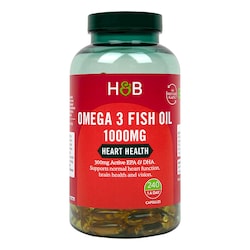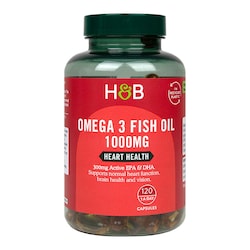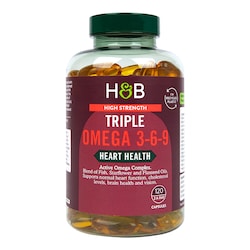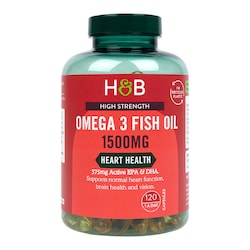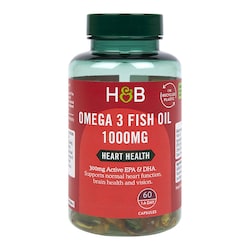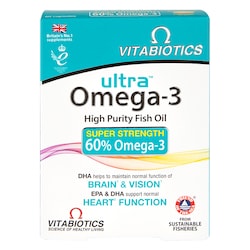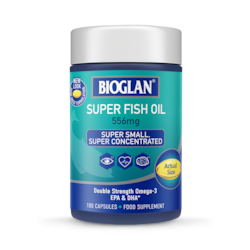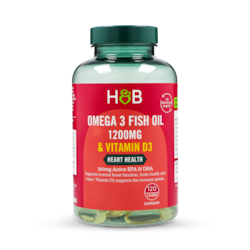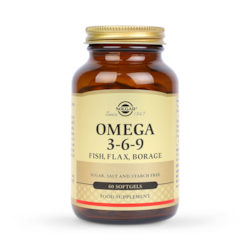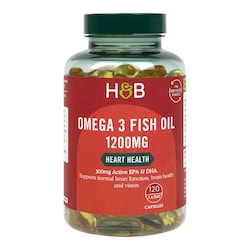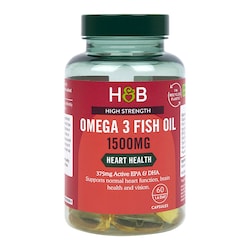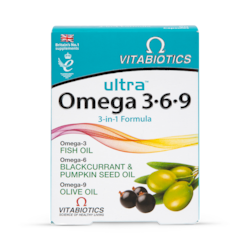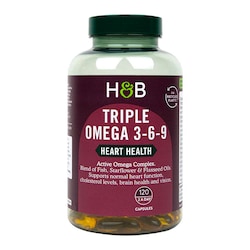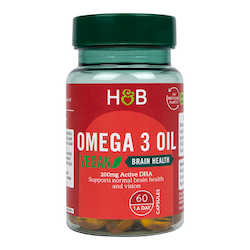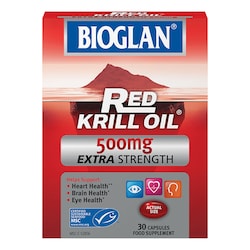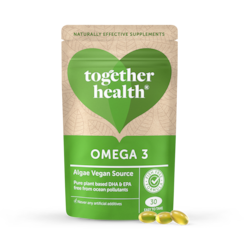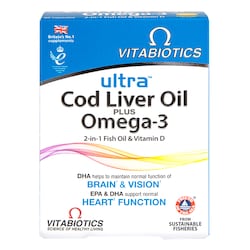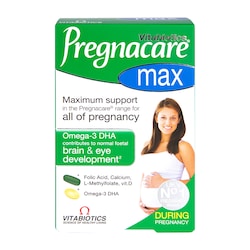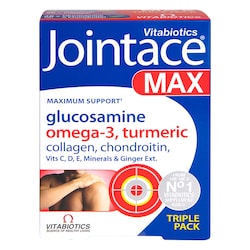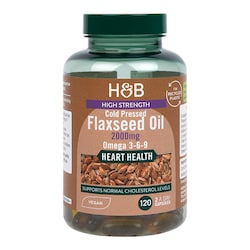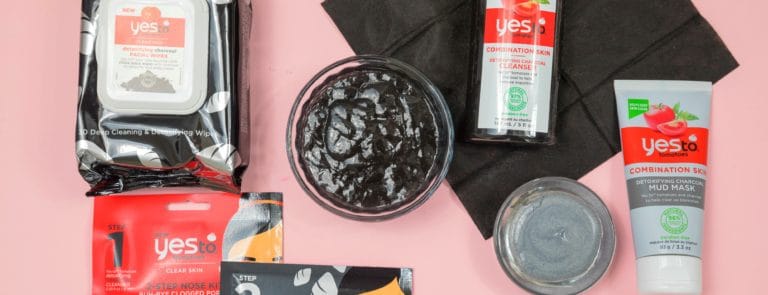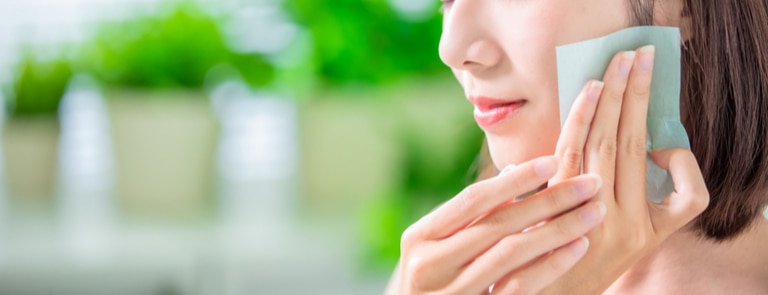20% off £30
Code:QUICK
Facial swelling – facial puffiness causes & treatments

What causes facial swelling? What can you do to avoid it and what can you do if your face is puffy? Check out our facial swelling guide for practical advice.
Summary
1What does facial swelling look like?
It depends on which parts of your face are affected, or if all of your face is puffed up...
2What causes facial puffiness?
There can be numerous reasons as to why your face is looking a bit swollen – from allergic reactions through to side effects of recent surgery...
3How to reduce face swelling
It would be pretty tricky to cut out all the foods that could be causing your facial bloating. Luckily, there are a few hacks you can try that may...
If you’ve woken up with a puffy face, it can be a bit alarming, particularly if your face was absolutely fine and showed no signs of swelling before you went to bed.
Or has your face gotten puffier as the day’s gone on?
If it has, it can be as equally as worrying and get you wondering what’s wrong with you/or face, if anything.
Facial swelling can happen to the best of us and be caused by any number of things; some that aren’t anything to be worried about and others that may be worth getting checked out.
If you’re reading this because you have a swollen face or are just curious about what makes people get a poofy face, you’re in the right place.
What is facial swelling?
It’s exactly as it sounds, when your face becomes swollen.
So all or parts of your face become puffy and look bloated. Essentially, this is usually because of a build-up of fluid within the facial tissues.
Facial swelling can spread to your neck and upper arms too.
Just as facial swelling can range from being minimal to severe, it’s also possible to experience it for just a matter of hours or longer.
Generally speaking, it does vary from person to person.
What does facial swelling look like?
It depends on which parts of your face are affected, or if all of your face is puffed up.

Swollen eyes
For instance, you may have extremely swollen eyes.

Puffiness under eyes
Or you may just have puffiness under one or both eyes.

Swollen cheek
You could have a swollen cheek or cheeks.

Swollen lip
Your lips may be swollen.
Facial swelling doesn’t look exactly the same on everybody; these images are just a small example of what it can look like.
You will know if your face feels and look puffier than normal and if the level of puffiness is something you should get checked out, especially if it is causing you any pain or discomfort.
Summary
Facial swelling is when your face becomes bloated/swollen.
This could be your entire face or parts of it, such as your lips, cheeks or eyes.
If the swelling is painful or spreading rapidly, get it checked out by a healthcare professional.
What causes facial puffiness?
There can be numerous reasons as to why your face is looking a bit swollen – from allergic reactions through to side effects of recent surgery – however, one of the most common causes is diet.1
You may have experienced bloating in your stomach after eating, but did you know that certain foods can also have a negative effect on your face?
Products that contain lots of salt are the most likely culprits because they can lead to your body retaining higher levels of water than normal in order to counteract all that sodium.
To avoid getting a puffy face from food, eat as little of certain items as you can.
This is especially important before you go to sleep as you won’t be drinking any fluids when you’re off in the land of nod. Things to steer clear of include:
- Cheese and dairy products - as we age, we have fewer enzymes that enable our bodies to digest lactose effectively. This can cause our immune systems to trigger the release of inflammatory chemicals, causing redness and swelling, as well as puffy eyelids, under-eye bags and dark circles on the face.2
- Salty snacks - like pretzels, crisps or salted nuts – when we eat lots of salty, dehydrating foods, it can lead to our body retaining water to try and dilute the salt. This may cause facial swelling in the process.
- Alcohol – is extremely dehydrating and makes your blood vessels widen, which can lead to a red, swollen, puffy appearance. Over time, these blood vessels can burst over time, making any redness more permanent.3
- Certain high-sodium condiments, such as soy sauce – as is the case with salty snacks, rather than hydrating the body, high sodium foods dehydrate the body and skin. They also trigger our bodies to try and retain any moisture that may be present, which can cause puffiness. People aged 50 and under should eat 2,300 mg or less of sodium per day. Adults aged 51 and over should consume 1,500 mg of sodium or less per day.4
Water retention is a completely natural thing for the body to do when it gets dehydrated.
Instead of using what little water it does have to keep you hydrated, it sometimes gets stored instead, which can cause things, such as bloating and swelling in your body and face.5
When this happens, one of the best things you can do to combat water retention is increase your water intake, which will help boost your lymphatic drainage.
The most common reasons for water retention include eating too much salt, allergies, getting up early, hot showers, alcohol and premenstrual syndrome (PMS).
Having an allergic reaction to food or pollen can lead to facial inflammation, especially around the eyes and nose.
This swelling, also referred to as angioedema, can also be caused by an allergic reaction to certain medicines, such as aspirin, ibuprofen and certain blood or heart pressure medications.
The swelling tends to look rashy and develops on and around the lips and eyelids.6
Cellulitis is a bacterial skin infection that can cause your face and your body to rapidly become swollen, as well as red and hot.
If you develop these symptoms and the swelling is spreading, speak to a medical professional immediately as it is a serious health condition that’s usually treated with a course of antibiotics.7
When the lining of your sinuses get inflamed or infected, they can become clogged with mucus.
It’s not uncommon for the pressure caused by the mucus to cause a dull ache around the eyes, greenish-yellow nasal discharge, headaches—and sometimes, facial swelling.
These infections tend to be caused by a virus and can usually be treated with rest, drinking plenty of water and possibly taking an antihistamine to help further reduce any puffiness.8
Numerous things can cause facial swelling. They include allergies, salty food and drink that’s dehydrating, as well as bacterial skin and sinus infections.
How to reduce face swelling
It would be pretty tricky to cut out all the foods that could be causing your facial bloating. Luckily, there are a few hacks you can try that may be effective at reducing the appearance of swelling:9
1. Splash your face with cold water
For immediate relief from a puffy face, it’s worth going to the bathroom and washing your face with cold water.
The temperature of the water should make the blood vessels under your skin constrict and consequently bring down any inflammation or swelling.
2. Use a jade roller
You may have seen these tiny rollers in shops or beauty magazines, but do you know what they do?
Made from cooling jade stone, they look like mini paint rollers and are designed to massage the face.

The possible benefits of jade rolling include boosting circulation and blood flow, as well as stimulating the lymphatic system so it works faster to drain out any toxins from your body.
Handpicked content: A guide to facial rollers
3. Drink plenty of water
Staying hydrated throughout the day is a given regardless of your face’s puffiness.
Nevertheless, if you do experience swelling that is down to water retention, drinking lots of H2O may help reduce it.
Ideally, we should all be consuming six to eight glasses (roughly 1.2 litres) of water per day.11
4. Moisturise with aloe vera
While most moisturisers won’t have much impact when it comes to bringing down a puffy face, products featuring aloe vera might.12
Aloe vera contains certain soothing compounds, meaning they should help to reduce the appearance of swelling on the skin.13
For the best results, store your moisturiser in the fridge, so it feels nice and cool on your skin when you use it.
Need a new moisturiser? You’ll find plenty of creams, lotions and gels enriched with aloe vera in our face care range.
5. Choose your snacks wisely
Just like there are foods that can contribute to water retention and puffiness, there are also foods that can help you avoid it.
Try switching up your salty snacks for fresh fruit and veg, swapping ice cream for a probiotic yoghurt or cooking with wholegrains instead of processed products.
6. Drink green tea

Sipping away on green tea can help kickstart your system.
The additional water will help give your body a hydration boost and, depending on how much of it you drink, flush out your system.
At the same time, the polyphenol compounds that are found in green tea will help your body attack fat cells, helping protect your skin against free radical damage.
What’s more, a 2017 review of research found that polyphenols may also prevent the sebaceous glands from producing excess sebum, or oil, which can lead to inflammation.14
7. Sleep on your back
As obvious as it sounds, the way you sleep has a part to play in facial swelling, especially if your face always looks really puffy in the morning.
Sleeping on your stomach or side can lead to increased fluid retention.
However, sleeping on your back with your head elevated on an extra pillow is the key to beating gravity and helping reduce puffiness.15
8. Reach for some cucumber slices
Putting cucumber slices under your eyes is an age-old thing that’s so age-old, most of us do it without a second thought.
The coolness of cucumber slices acts as a vasoconstrictor, which means it slows down blood flow.
And because eye puffiness can be caused by vessel dilation and swelling, the coolness of cucumbers helps constrict blood vessels, which helps relieve puffiness.16

Summary
There are lots of things that you can do to try and reduce facial swelling, ranging from drinking plenty of fluids, especially water and green tea, rollering your face, splashing your face with cold water and sleeping on your back.
Takeaway
If you haven’t experienced facial swelling, we’re sure you will do at some point.
However, how puffy your face is and how long it stays that way, isn’t something that’s set in stone.
There are certain lifestyle habits you can adopt to help reduce the likelihood of having a swollen face, e.g. cutting down on alcohol, avoiding salty snacks, eating fresh food rather than processed food and sleeping on your back.
However, it’s important you do keep a close eye on your facial swelling because it could be a sign of several medical conditions.
Make sure you look out for other potential symptoms because your face puffiness may also be being caused by a reaction to a certain food, medication or an insect bite.
Overall, if you’ve not experienced swollenness in your face before and you’re worried, it’s always best to seek help from a health professional.
Now that you’re here, you may find this article useful – ‘Why do I sweat so much?’
- https://www.healthline.com/health/food-nutrition/face-bloating-morning
- https://www.hellomagazine.com/healthandbeauty/skincare-and-fragrances/2015110628118/dr-nigma-talib-face-mapping/
- https://www.livestrong.com/article/526475-can-drinking-alcohol-cause-your-body-to-become-swollen/
- https://healthfully.com/does-sodium-make-your-face-fat-7924746.html
- https://www.womenshealthmag.com/uk/beauty/skin/a30341793/puffy-face/
- https://www.womenshealthmag.com/health/a19906900/reasons-your-face-is-swollen/
- https://www.womenshealthmag.com/health/a19906900/reasons-your-face-is-swollen/
- https://www.womenshealthmag.com/health/a19906900/reasons-your-face-is-swollen/
- https://www.healthline.com/health/food-nutrition/face-bloating-morning#morning-remedies
- https://www.harpersbazaar.com/uk/beauty/skincare/a19507946/jade-rollers-benefits-tips/
- https://www.nhs.uk/live-well/eat-well/water-drinks-nutrition/
- https://health.howstuffworks.com/skin-care/moisturizing/basics/quick-tips-can-moisturizing-reduce-puffiness-in-your-face-.htm
- https://www.pennmedicine.org/updates/blogs/health-and-wellness/2019/august/aloe
- https://www.ncbi.nlm.nih.gov/pmc/articles/PMC5384166/
- https://www.realsimple.com/beauty-fashion/skincare/skincare-face/puffy-face
- https://www.allure.com/story/what-do-cucumbers-do-for-your-eyes
The advice in this article is for information only and should not replace medical care. Please check with your GP or healthcare professional before trying any supplements, treatments or remedies. Food supplements must not be used as a substitute for a varied and balanced diet and a healthy lifestyle.
Last updated: 10 September 2021


